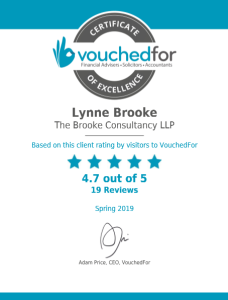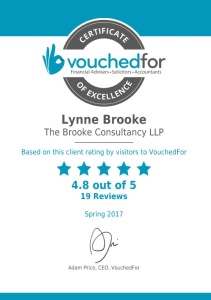Chris Disspain is the Chair of TBC’s Management Team. He is a lawyer, author, CEO and non-executive director. Here he looks at how the TBC model works and why it is attractive to some lawyers.
I was 36 when I quit the law. I’d lived through the tyranny of the timesheet; I’d done the day-to-day drudgery of admin, and I’d experienced the pains of partnership. What I really wanted was a way to pursue the bits of being a lawyer that I was passionate about…you know, the actual ‘being a lawyer’ bits. Back then, I just couldn’t see a way to do that.
Things have moved on a fair bit since those days. The Brooke Consultancy (TBC), set up by my ex-senior partner Lynne Brooke, is a New Model Law Firm that is reinventing what it means to have a fulfilling and rewarding career in the law – for both young solicitors who feel they are just another cog in a large machine and for veterans of the profession looking to step off the treadmill of large firms and reignite the passion that drew them into a career in law in the first place.
TBC are a group of like-minded lawyers and business professionals who work remotely and don’t have fancy offices or irrelevant overheads. TBC’s clients pay for help and advice not for plush furnishings and art works.
Whether they are young or mature, TBC was created to allow lawyers that join us the freedom to
- choose work that is in line with their personal passion
- make or enhance their professional reputation
- ignite or revive their drive
- untether themselves from the never ending ‘full timesheets are everything’ dictum and take on as many or as few cases as they choose
TBC offers the infrastructure, security, flexibility and financial safety-net to allow lawyers to work on what excites and drives them.
TBC saves its lawyers time, effort and money by:
- doing the day to day administration, accounts and billing management
- dealing with all aspects of the SRA and compliance (other than lawyers own professional conduct)
- dealing with client account management
- handling practising certificates and professional indemnity insurance
- professionally dealing with any complaints
- providing large firm marketing and promotion coupled with a small firm ethos and character
- giving access to professionals and experts in other areas so lawyers can provide their clients with a full ‘in house’ service
TBC’s goal is to enable lawyers to create a professionally enriching self-managed career path without needing to take on the high risk, high-pressure demands, and huge costs of going it alone.
This opportunity is not for everyone. Lawyers that join TBC have an existing client following with billings in excess of £75,000 per year. TBC’s lawyers keep 70% of the fees paid from work introduced by and carried out by them. Arrangements are in place for referral fees to be paid for work introduced by them to other lawyers and vice versa.
If the idea of pursuing this path in genuine collaboration with some of the brightest and best minds in the law attracts you or re-ignites a fire that has been slowly ebbing away in the world of large firm anonymity, simply make contact with TBC. Let’s start a conversation about a future that reduces risk and allows you to take back control of your career, to lift your professional profile, to create the flexibility and agility to work the hours you choose on the matters you are passionate about and to trash to tyranny of the timesheet; ditch the drudgery of day to day administration and part with the pain of partnership.
TBC is currently looking for lawyers within all fields but especially immigration, employment, IP, Property, Tax, Private Client, IT contracts, and family law with particular reference to financial settlements.
If you’re interested in learning more contact Eva Caletkova on eva@brooke.law
The Brooke Consultancy is a law firm and business consultancy offering Business Advice in the Round. We help businesses and individuals prosper. Click here to contact us.

 s based on stringent criteria.
s based on stringent criteria.




 Winter 2021
Winter 2021